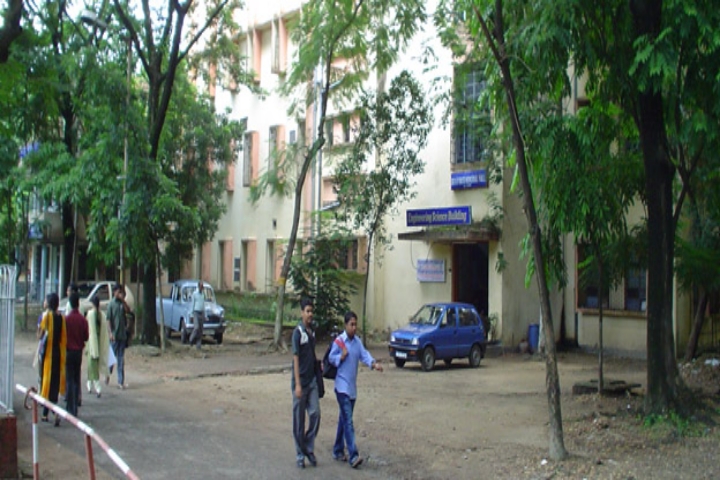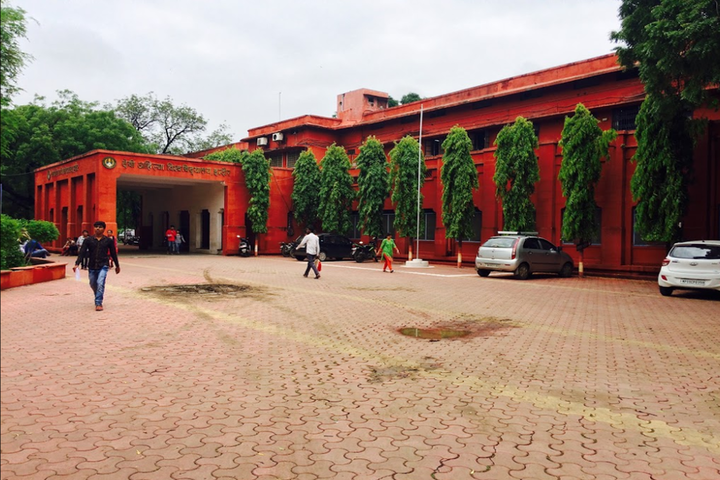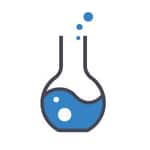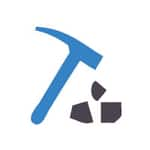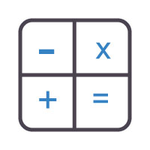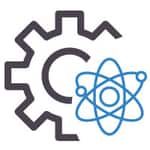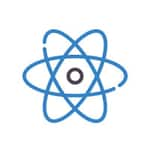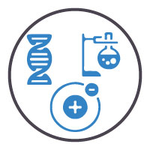
Instrumentation Sciences Course Details - Fees, Subjects, Syllabus, Duration, Eligibility, Career Scope
Degrees offered: M.Sc., Ph.D, B.Sc., B.Sc.(Hons), Diploma
What is Instrumentation Sciences
The Science stream has different specializations that a candidate can pursue if he/she has a passion for doing so. The reason many students used to take up science stream so as to pursue Medicine, and there were fewer options before when compared to today. There are options you can choose when you are planning to pursue science at the college/university level. One such specialization which you can be pursued, and has a lot of scope in your career is Instrumentation sciences. It is a specialized branch of both science and engineering courses. It deals with the scientific and technological aspect of measurement and the control of variables in a production/manufacturing sector. The purpose of this course is to train professionals for both industrial and commercial organizations such as chemical plants, electrical power plants etc. There are two levels of the course of Instrumentation Sciences. They are:
1. B.Sc. Instrumentation sciences
2. M.Sc. Instrumentation technology
The B.Sc. in Instrumentation sciences course is of 3 years, and after completing the course, the candidate can get hands-on experience working in the industry. The M.Sc. in Instrumentation Technology is the next level of the course, where the duration of the course is 2 years. After completion of the post-graduation, you will get an edge over your competition. The admission to the course is strictly based on the merit of the candidate. If he/she has good grades in the 10+2 level, then they are automatically qualified for pursuing the course.
Eligibility Criteria (UG & PG) of Instrumentation Sciences
The eligibility criteria of the graduate and post-graduate course are similar to that of other courses, and the candidate must satisfy the criteria to be qualified to take up the course:
1. Undergraduate Courses
The candidate who wishes to pursue the graduation in Instrumental science, he/she has to have attended up to 10+2 level science group, which includes Physics, Chemistry and Maths from a recognized board.
He/she must have good grades in 10+2 subjects. However, most universities ask for the candidate to have at a minimum pass marks. The candidate must have at least 45% to 50% overall.
The admission for the course is based on the merit of the candidate.
2. Post-Graduate Courses
Candidates who wish to pursue M.Sc. in Instrumentation Technology should have a degree in the preferred subject or have a degree in biology, physics or chemistry with 50% marks from a well-recognised university.
He/ she should have required percentile in the preferred subject, as required by the university.
The admission for the M.Sc is also merit-based.
Entrance Exams for Instrumentation Sciences
Jamia Millia Islamia Entrance Exam: This entrance exam is a university level entrance test that is conducted by the institution to select the candidates based on their merit in class 12 and also based on their performance in the entrance test.
Joint Entrance Exam (JEE) Main : This is a national level entrance exam that is conducted to shortlist the students from all across the country to give admission in the top tier engineering colleges in India.
MH CET – This is a state-level entrance test that is conducted by the government of Maharashtra to select the eligible candidates for the different courses that are offered in the various colleges in the state.
KEAM: Kerala Engineering Architecture Medical Exam is a common entrance path to various courses in the related fields of engineering, architecture and medicine. This exam shortlists the students for the programs that are offered by the different colleges in Kerala.
Scope of Instrumentation Sciences in India and Abroad
Like any other course, this course has a vast scope for the candidate. After completion of the course, the candidate gets hands-on experience at the industry level. The degree in Instrumentation sciences has job opportunities in the field of both governmental and non-governmental organizations. If you have a Master degree in the course, then you have the edge over your competition in job opportunities. The course, on the whole, gives more scope for students to work in major industries and chemical plants. Students who wish to have a bright future should consider pursuing B.Sc. and M.Sc. in Instrumentation sciences.
Course Fees Instrumentation Sciences
| Minimum Fees | Maximum Fees | |||
|---|---|---|---|---|
| Private | Government | Private | Government | |
| UG | ||||
| PG | ||||
| DIPLOMA | ||||
Course Subjects
All the courses have subjects that need to be taken by the student, and these subjects help the candidates in learning beyond the subject. The subjects included in the program focused on Instrumentation sciences include:
1. Network analysis
2. Applied physics
3. Mathematics I
4. Chemistry
5. C and Data structures
6. Introduction to instrumentation
7. Mathematics II
8. Biology
9. Digital Electronics
10. Analog Electronics
11. Biochemistry
12. Signal and Systems or Microbiology and genetics
13. Industrial Instrumentation
14. Analog electronics
15. Statistical methods and reliability
16. Electronic Instrumentation
17. Microprocessor
18. Analytical Instrumentation I
19. Electrical Machines and control systems
20. Analytical Instrumentation II
21. Biomedical Instrumentation II
22. Microcontrollers and its applications
23. Statistical quality control
24. Transducers, sensors, actuators for Instrumentations
25. Signal Conditioning processing and interfacing techniques
26. Principles of Test and Measuring Instruments
27. Digital Electronics
28. Microprocessor based instrumentation and system design
29. Control system design
30. Power electronics
31. Process control and automation
32. Optical instrumentation and photonics
33. Biomedical Instrumentation
34. Instrumental methods of analysis
35. Advanced fabrication techniques
36. Instrumentation Laboratory visit
37. Seminars
38. Comprehensive viva
39. Project work and report
Careers in Instrumentation Sciences
After completing a B.Sc. or M.Sc. in instrumentation sciences, you open to the world of opportunities. There is a high chance that the candidate might be placed in the top companies across the country. The course has scope at both national and international level; even companies in other countries may hire the candidate if they have the talent and qualification. The candidate can be an instrumentations supervisor, lecturer or maintenance head in a reputed company. Once the candidate completes his/her graduation, you could get the opportunity in companies like Wipro, Infosys etc. Thus, there is a vast scope for a bright career.
Upcoming trends
Like any other field of science, instrumentation sciences have had changes in them, and there are certain trends that make it unique. The main trends are sensors and measurement systems. This helps in extracting information such as the state of the nuclear reactors and also associated with the energy conversion system. Another trend is the scintillation-based measurements which are an emerging sensor technology. It is cost-effective, reliable etc. These trends make instrumentation sciences more interesting for candidates who are interested in pursuing the course in future.
Job Profiles and Top Recruiters
Job profiles for Instrumentation sciences
Similar to other science courses, there are job profiles for the course that is suitable for the candidates who are aspiring to go for professional courses. Below are some of the job profiles of the Instrumentation sciences course:
Job profile | Job description |
Technical Support Executive | A technical support executive’s responsibility is to monitor and maintain the computer systems and networks in an organization. |
Maintenance head | The maintenance head is a person who oversees the installation, repair and keeps up with operations of the company’s facility. |
Inspection head | The role of the inspection head is to inspect tasks, tests and sample materials or products for defects. |
Project scientist | A project scientist is a person who handles the research and makes significant contributions to the creative project of his/her discipline. |
Instrumentation supervisor | The instrumentation supervisor is responsible for supervising the installing process and maintenance of the equipment. |
Lecturer and home tutor | A Lecturer is a person who imparts knowledge about the subject to his/her students in college or university. A tutor is responsible for giving extra coaching to students regarding the subject. |
Instrumentation engineer | An instrumentation engineer is responsible for designing, developing and installing the devices/systems used in manufacturing facilities and chemical plants. |
Top recruiters
After completing graduation or post-graduation in the subject you prefer, there are a lot of job opportunities open to the candidates who aspire to be part of the professional world. It is the same with all the science courses as well. There are lots of recruiters out there who are waiting for well-qualified candidates. Here are some top sectors where the candidate can be hired.
1. IT companies
2. Power plants
3. Chemical plants
4. Electronic companies
5. Manufacturing companies
6. Health care
And the top companies that hire B.Sc. / M.Sc. graduates are:
1. TCS
2. Wipro
3. Infosys
4. Merino group laminates
5. Genpact
6. Sunpac
7. Microsoft
8. Amazon
9. ONGC
10. NTPC
11. DRDO
12. BHEL
Average Salary
Generally, the salary of any profession is decided basically on the basis of the candidate’s qualification and performance during his/her term in office. The salary of the job profiles are as follows:
Job profile | salary |
Technical Support Executive | Rs 2 lakh to 3 lakh per annum |
Maintenance head | Rs 3 to 5 lakh per annum |
Inspection head | Rs 2.73 to 4.80 lakh per annum |
Project scientist | Rs 7, 97, 029 lakh per annum |
Instrumentation supervisor | Rs 1 lakh to 75 lakh per annum |
Lecturer and home tutor | Rs 43,306(Lecturer), Rs 14 467 (tutor) |
Instrumentation engineer | Rs 46, 662 per annum |
**The salary figures mentioned anywhere in this article is just for reference purposes. Please treat them as such. Actual salaries may vary depending on respective candidates, employer, job location and numerous other factors.
Required Skillset for Instrumentation Sciences
For every course and job opportunity, you need to have certain skill sets. These skill sets will make you a more desirable candidate. These are some of the skills required for a candidate who wishes to pursue the course:
1. Strong aptitude in Maths and Physics – The candidate who aspires for a profession in the course has to have good aptitude in subjects like maths and physics.
2. Excellent communication skills – He/she should have good communication skills. They are required to convey their ideas about the subject, and if they are efficient in communication, then the organization will value them for it.
3. Problem-solving – When one works in an industry or in a chemical factory, there are lots of problems that need to be faced, and problem-solving skills will help in being efficient in solving the problems.
4. Project designing – Most important skill among all is the project designing skill where you need to work towards conveying your project ideas through proper project designing.
Course Curriculum for Instrumentation Sciences
The curriculum of the course is designed to impart knowledge among the aspiring candidates about the scientific and technological importance of the instrumentation course. It not only deals with the main subject but also other subjects which will give the candidate knowledge about the broader aspects of the course. This will help them to have options when they have to decide about their future. A well-defined curriculum gives aspiring candidates the opportunity to prepare to work towards becoming the best in the field.
Popular Instrumentation Sciences Entrance Exams in India
Frequently Asked Questions (FAQs)
Question: Which are the top sectors that a candidate can potentially work in?
Answer :
For every course, there are certain areas where the candidate can focus on while applying for a job. The key sectors that you can be placed are:
a. IT companies
b. Power plants
c. Chemical plants
d. Electronic companies, etc.
Question: How is the salary decided for this course, and what is the salary of the job profiles related to the course?
Answer :
Generally, the salary of any job profile is decided by the company based on the qualification he/she has and the talent and contribution she/she has made towards the company. Some of the job profiles and their salary have been discussed above.
Question: What is the importance of this course?
Answer :
The candidate who graduates in the Instrumentation science course has a large number of opportunities. Both at the national and international level. This course is important as there is a high demand for people who are well aware of the use of instrumentation and how to control and operate them. They also are responsible for creating designs for scientific project work. The course is important for the development of the country in terms of science.
Question: Who are the top recruiters of the field?
Answer :
The field of instrumentation science has various recruiters. The recruiters are looking for students who have excellent qualification and experience in the field. Some of the top recruiters have been discussed above
Question: What exactly are Instrumentation sciences?
Answer :
Instrumentation Science is the scientific and technological study of measurement and control. It basically includes the fundamental knowledge of the process of instrumentation and control.

